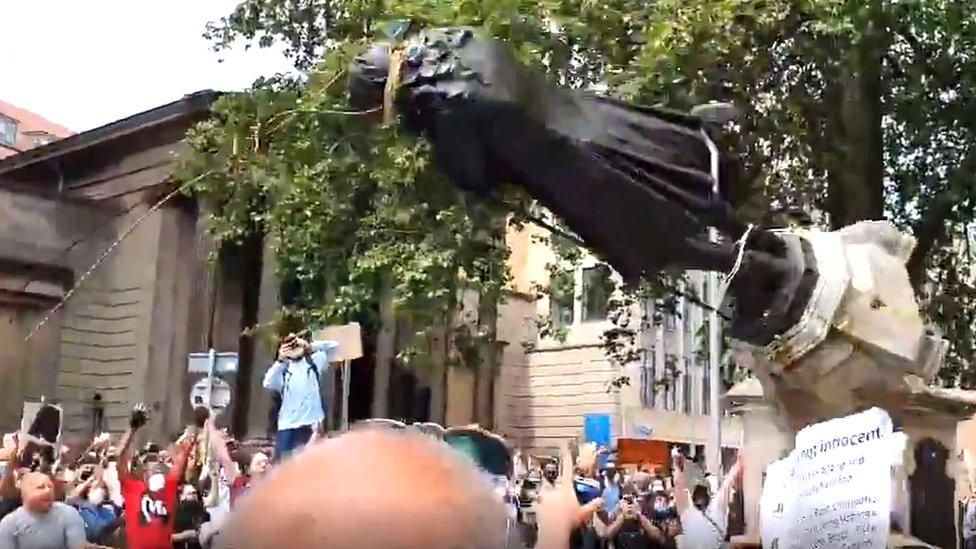Enslaved African man's headstone in Bristol vandalised
- Published
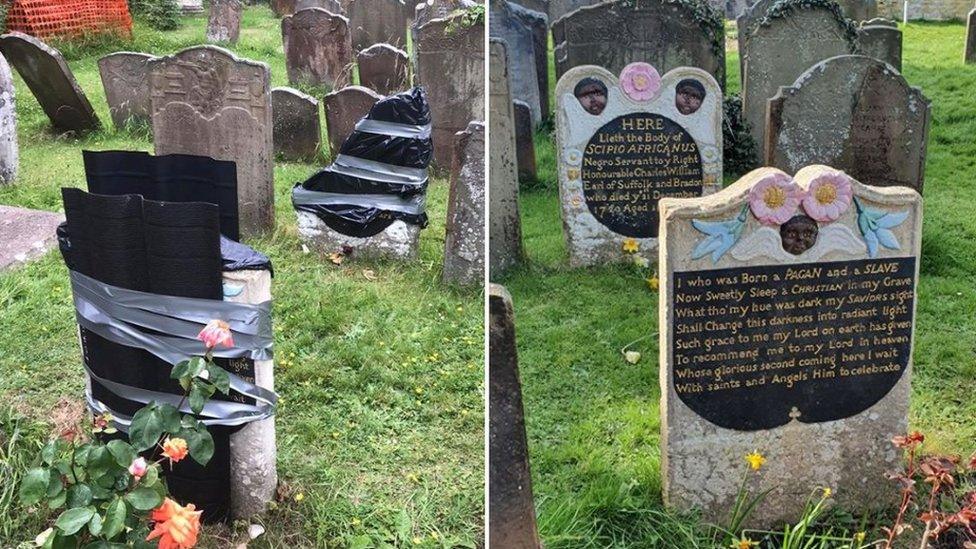
One of two gravestones at the site has been smashed in two
The headstone of an African man who was enslaved in the 18th Century has been smashed in two.
The Grade II* listed grave of Scipio Africanus is in St Mary's Churchyard in Bristol.
A local councillor said he believed it was a "retaliation attack" for the recent toppling of the statue of slave trader Edward Colston in the city.
Avon and Somerset Police said it was investigating after receiving a report of criminal damage.
The force said it believed the damage occurred between 12:00 BST on Tuesday and 08:00 on Wednesday.
Scipio Africanus was an African servant of the 7th Earl of Suffolk.
An inscription on the brightly painted gravestone - which is one of two at the site in Henbury - says he died in the city in 1720 aged 18.
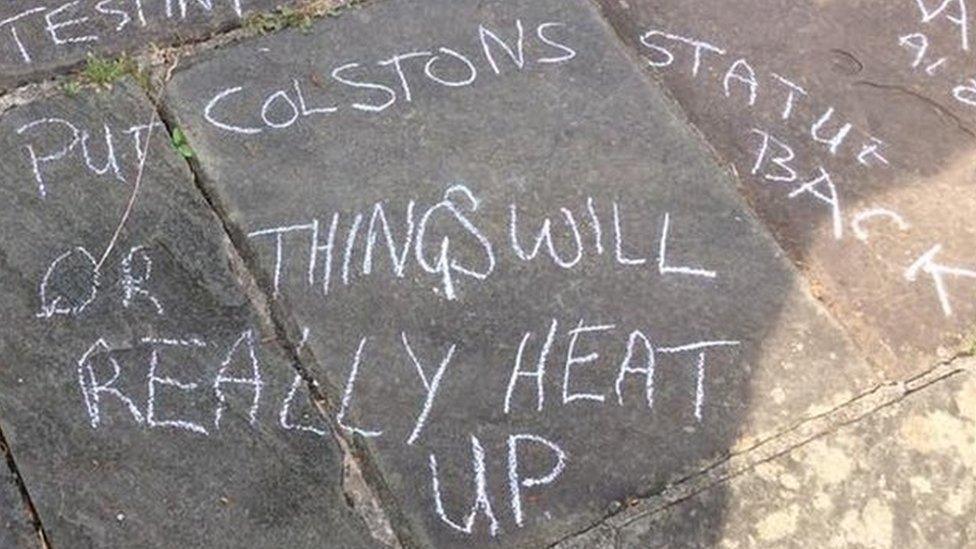
A message was scrawled on the ground nearby
A message left in chalk on the flagstones near the grave said: "Now look at what you made me do.
"Put Colston's statue back or things will really heat up."
Conservative councillor Mark Weston, who represents Henbury on Bristol City Council, said he was "deeply saddened by what is happening".
"We have seen war memorials defaced and statues vandalised and I have to wonder where this will end," he said.
Bristol's elected mayor Marvin Rees appealed for people not to go down the route of "tit-for-tat" attacks.
Speaking during a Facebook Live Q&A, he said the "iconic piece of Bristol's history" had been "smashed in two".
"The opportunity is to showcase to the country and the world we are a city that has the ability to live with difference," he said.
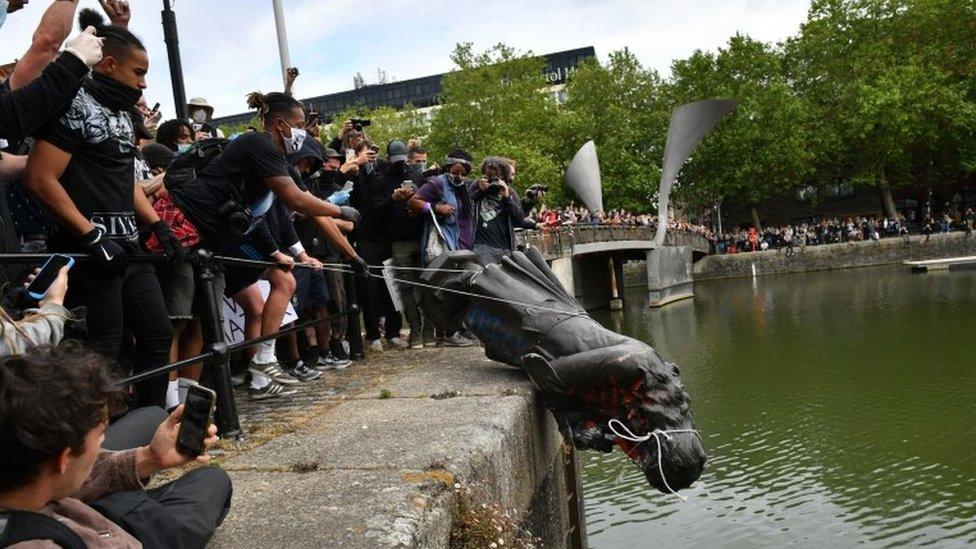
The statue of Edward Colston was pushed into the harbour after being toppled by protesters
Historians believe Scipio Africanus may have been born into the household of 7th Earl of Suffolk, Charles Howard, and was the son of an enslaved West African woman, according to the Local Democracy Reporting Service.
He was named by his "owners" after the Roman general Publius Cornelius Scipio Africanus.
The Colston statue was torn down and dumped in Bristol's harbour during anti-racism protests earlier this month.
It has since been pulled from the water and is expected to be given a new home in a city museum.
There have been several other protests calling for statues and monuments celebrating controversial figures in the UK to be taken down or amended.
This includes governors at Oxford's Oriel College voting on Wednesday to remove a statue of colonialist Cecil Rhodes, and a statue of slave trader Robert Milligan being removed from outside the Museum of London Docklands last week.
- Published18 June 2020
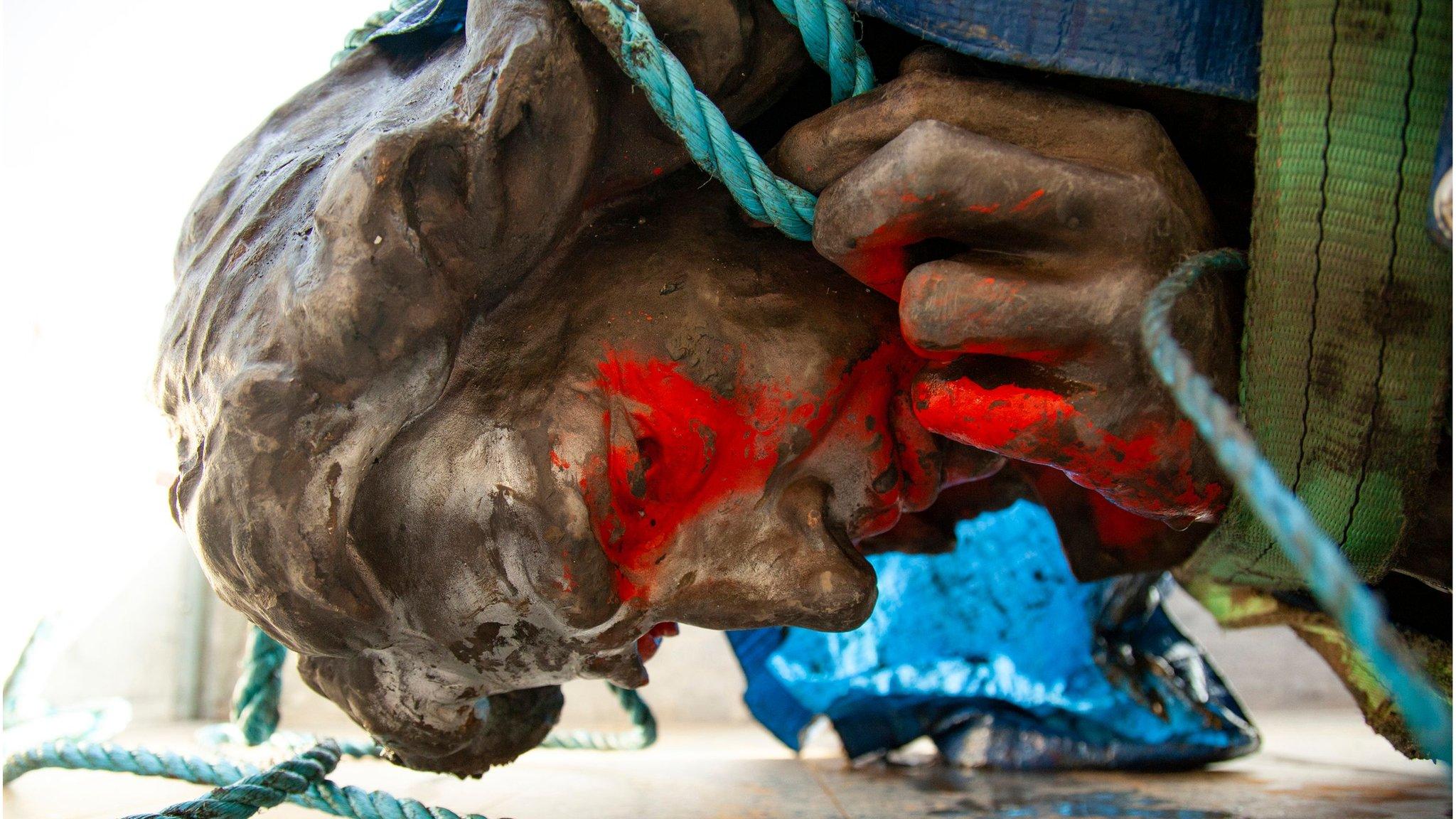
- Published18 June 2020
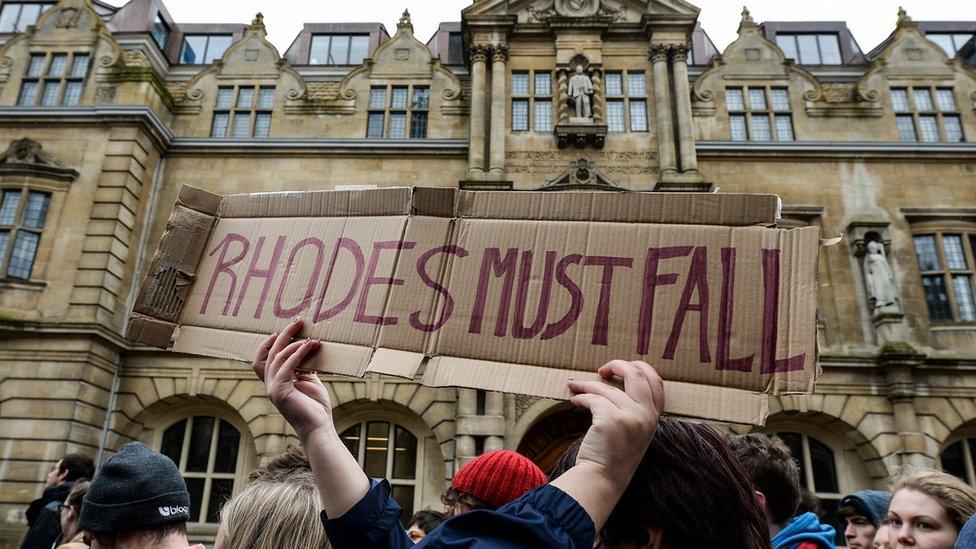
- Published18 June 2020
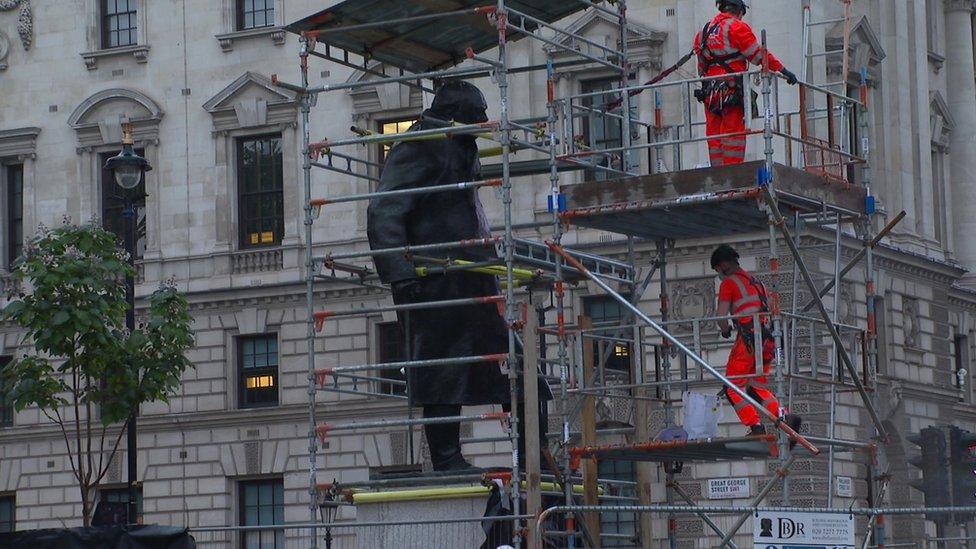
- Published17 June 2020
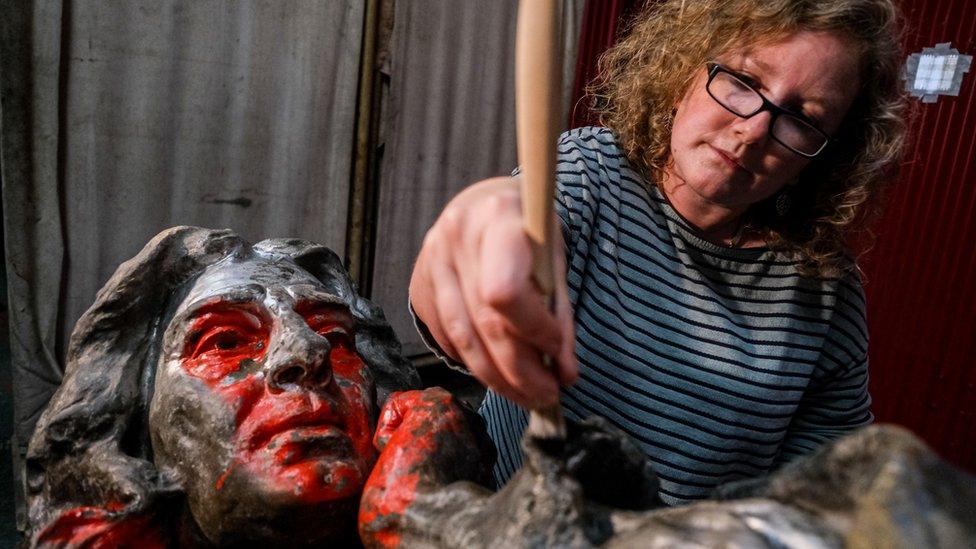
- Published12 June 2020
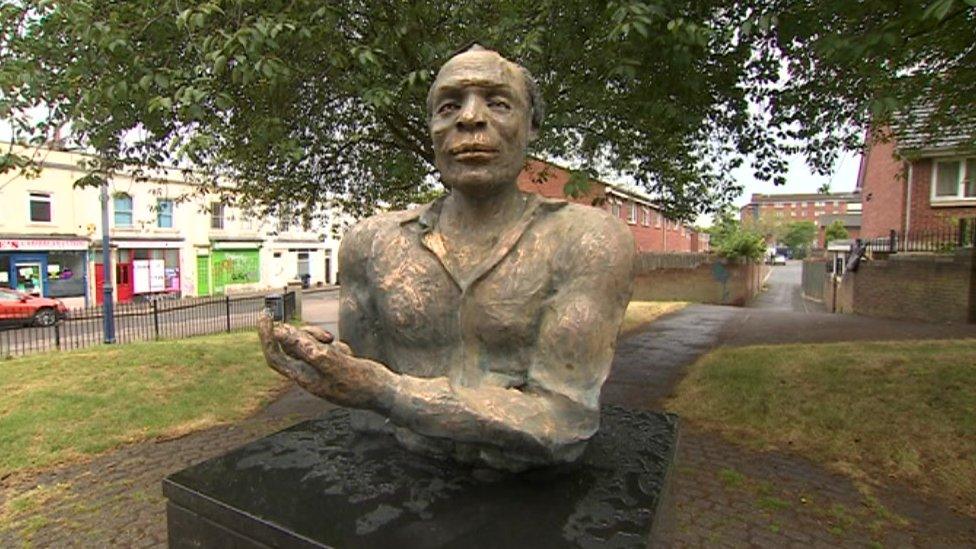
- Published11 June 2020

- Published8 June 2020
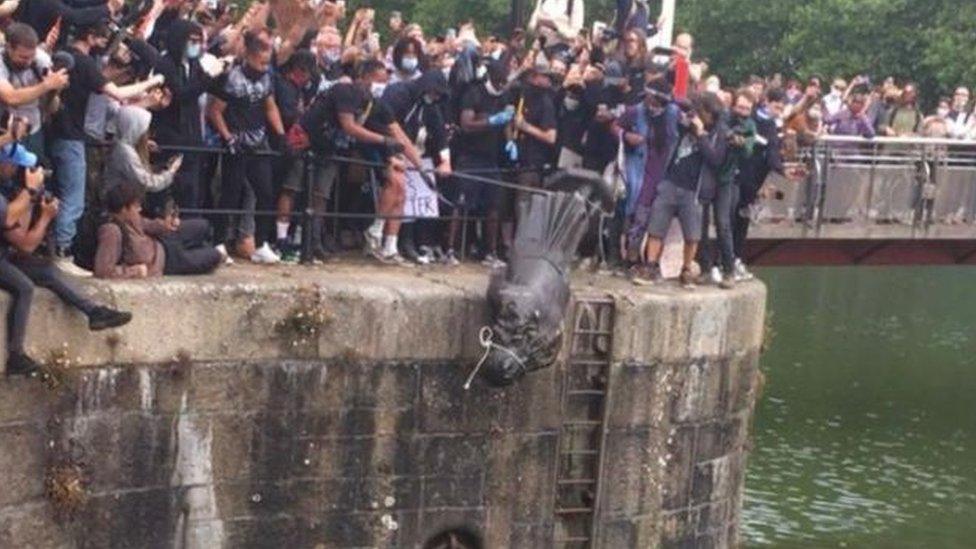
- Published8 June 2020
